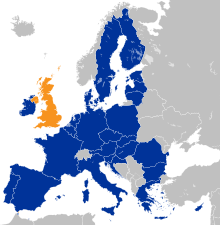In English Speaking Commercial Courts in France, Germany and the Netherlands bid for London's Work which I posted on 4 April 2021, I discussed how the UK's withdrawal from the European Union had been seen as an opportunity for lawyers and judicial authorities in France, the Netherlands and other countries to grab some of London's lucrative, international, commercial litigation work. The Dutch authorities responded by establishing the Netherlands Commercial Court as an English-speaking commercial in Amsterdam. In Paris, some of the proceedings before the International Chamber of the Paris Commercial Court and an International Chamber of the Paris Court of Appeal take place in English (see Présentation générale CCIP-CA / The ICCP-CA. There are also proposals to set up similar English-speaking commercial courts in Belgium, Germany and Switzerland.
This month the Netherlands Commercial Court published a News Update which contained an article entitled Brexit: Europe sees emergence of specialist commercial courts to compete with the UK (Chessa, IBA). It refers to a short article by Sara Chessa dated 17 March 2023 on the International Bar Association's website. Although the News Update quotes the opinion of Mr Martin Poelman that the Netherlands Commercial Court has very good judges whose judgments are perceived as good and solid and Dries Beljon's view that litigation in that court is quicker and cheaper in that court than elsewhere, Ms Chessa's article does not suggest that the Dutch or French courts are taking much (if any) work away from London. She notes that between its opening in 2019 and 2022, the Netherlands Commercial Court saw only 16 cases, according to a publication by the Court, If she was referring to the judgments page of the court's website there have been 16 judgments between opening and 23 April 2023. Ms Chessa also quotes Nick Vineall KC who denied that London had lost any business at all since Brexit and that if anything the courts and arbitrators are busier than ever.
It is, of course, very early days. Litigation under the inquisitorial system is obviously cheaper than under a procedure where contestant law firms leave no stone unturned. Also, exclusion from Lugano will impede the enforcement of judgments of the UK's courts in the EU (see EU Commission rejects the UK's Application to rejoin Lugano 6 May 2021). As an intellectual property lawyer, I am anxious that the Netherlands Commercial Court is pitching for soft IP work with its factsheet NCC and Intellectual Property. The court's most recent judgment concerns intellectual property and ownership of data (see Diamedica Therapeutics Inc. v Pharmaceutical Research Associates Group BV NCC 22/018 (C/13/730389) 23 April 2023). From 1 June 2023, the Patents Court and Intellectual Property Enterprise Court face competition from the Unified Patent Court.
Apologists for brexit contend that any loss of business in Europe will be more than made up by increasing business with the rest of the world. That is yet to be borne out by experience but even if it turns out to be the case for British business as a whole it may not turn out to be so for the legal services sector. In the EU England and Wales was by far the largest English-speaking common law jurisdiction. In the wider world, London faces competition from other powerful English-speaking common law courts in the USA, the Commonwealth, the Arabian Gulf and even Kazakhstan.
Anyone wishing to discuss this article may call me on +44 (0)20 7404 5252 during office hours or send me a message through my contact page.


.png)







%20(1).jpg)


